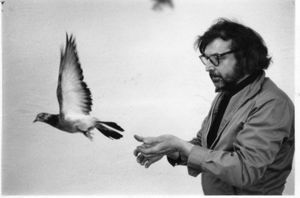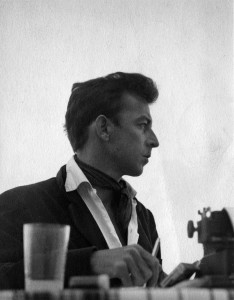Now Dig This
The Unspeakable Writings of Terry Southern, 1950-1995
Terry Southern
Josh Alan Friedman, Nile Southern, Editors
Open Road
Terry Southern is a major cultural figure of Sixties and Seventies, not unlike famed beats Alan Ginsberg or William Burroughs, but possibly more obscure for having dabbled in a variety of writing arts: from novels, to scripts, new journalism, and comedy sketches. He wrote novels Candy and The Magic Christian. In one interview, Southern states that a novel brought his attention to Peter Sellers, who brought the novel to Stanley Kubrick who then changed his mind about the tone for his movie adapting Red Alert as a film. Southern wrote screennplays for Kubrick's Dr. Strangelove and Dennis Hopper's Easy Rider, the movie that ushered in a new life to cinema. During this same time period he invented the New Journalism. After struggles drugs in the Seventies, his career went south although he wrote for National Lampoon, which led writing for Saturday Night Live in the early eighties. He has also written for Esquire, Paris Review, and Playboy. One story was reprinted in the O. Henry Awards.
These "Unspeakable Writings"--unspeakable in part because they are occasionally controversial, sometimes erotic, in part because they are mostly not intended to be performed as movie--provide excellent snapshots into Southern's peculiar frame of mind. The first interview introduces much about Southern's career, but considering the erotic tone it sets and the current political climate, some readers may be turned away. Southern appears to be of the old-school American Liberal mind-set where women's liberation meant more sexual freedom.
But the primary herbs flavoring one's reading Southern is his sense of absurd, reminiscent of Joseph Heller's Catch-22. It seasons all that he writes, be it journalism, stories, novels, or screenplays. Some of his nonfiction feels fictional while his fiction captures a tone of realistic nonfiction. Even the interviews have a feel of the surreal:

William Burroughs: Now here's something that goes straight in the wastebasket--"Non-narcotic." I don't want nything non-narcotic on these premises!
Terry Southern: Listen, they can say "non-narcotic" but they may have some really weird definition of narcotic, like something out of Dracula...The best here, for my tastes, are the New Journalism pieces. "Fiasco Reverie" travels to Guatemala on a part party trip, part military chess game preparing for the Bay of Pigs. "Grooving in Chi" talks about escaping the Chicago police with Allen Ginsburg, William Burroughs, and Abbie Hoffman during the 1968 riot while the Democratic Convention was carrying on.
My personal favorite would be "The Straight Dope on the Private Dick" wherein Southern investigates whether private investigating is a racket that cooks up evidence. He cooks up an absurd story (for the time, the Sixties) about his mixed-race son experiencing prejudice from African Americans at his school. He ends up discussing cases with a P.I. whom he trusts. The PI tells how he exposed various men who were ruining the lives of other men, including Lenny Bruce. This piece fits well with what's called the first "Tale" even though it introduces itself as a nonfiction investigative article probing cons and hustles in Hollywood.
This book may not be a book for everyone. Included is an article about Southern's relationship with Kurt Vonnegut, which would make most readers uncomfortable if not apoplectic. It was written for a tribute to Kurt Vonnegut but was left out. Nonetheless, it is another key to understanding a time period and generation that is disappearing.
Works available online:
- "A Run of Dimes"
- Art of Screenplays (The Paris Review)
- "Grooving in Chi" (PBS News Hour)
- Niles Southern on his father (Gadfly)
- Excerpt from the novel, Candy



No comments:
Post a Comment